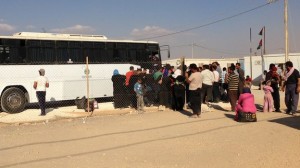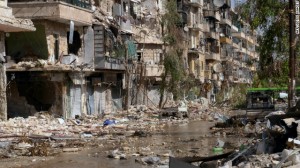By Ali Al-Bassam
Impunity Watch Reporter, Middle East
MANAMA, Bahrain — Five explosions occurred in the areas of Gudaibiya and Adliya within the Capital of Manama between 4.30 and 9.30 am last Monday, killing two foreign workers. One of the men died after kicking one of the bombs in Gudaibiya, and the second one died in a hospital after he was injured by an explosion that took place near a movie theater.

Citizens of Manama were warned not to touch any “strange objects,” and to report anything suspicious to the authorities
The Bahrain State News Agency reported that the Minister of State for Information Affairs and Government Spokesperson Sameera Ebrahim bin Rajab, condemned the explosions as a terrorist act, aimed at terrorizing citizens and destabilizing the country. Rajab said that the acts were committed under religious fatwas, ordered by religious figures who condone violence against civilians and policemen for the sake of their cause.
Rajab said that international law requires countries to protect its citizens by regulating religious speech and holding all those accountable who use such speech for the purpose of committing terrorist activities. Rajab said that she believes that the explosions were targeting foreign residents, who “have helped, and are still helping to enhance the economic development of Bahrain for decades.”
Last week, in an effort to ease civil tensions, the interior ministry announced a temporary ban on all rallies. UN Secretary General Ban Ki-moon said the ban “could aggravate the situation in the country,” and pleaded with the government “to lift them without delay. The US State Department responded to the ban, saying that they were deeply concerned.
The government also claim that the ban was established out of concern for the police, who have been targeted by explosions several times this year.
Patrick Henningsen, a geopolitical analyst, does not believe that the bombings are related to the protestors’ cause, or that it fits within their modus operandi. “If the protest movement was behing the bombing, they would have targeted government facilities, police facilities to make more of a statement.”
In an interview with RT, Jalal Fairooz, a former Bahraini MP, who served in the government opposition Al Wefaq party, said that the Bahraini government may have been behind the bombing. He referred to a previous explosion that occurred two months ago, where the government responded by capturing a village and later claimed that no bombing occurred.
Bahrain has been the subject of civil unrest since February 2011, when citizens gathered in the streets to demand more democracy and an end to discrimination against the majority Shia Muslim community by the Sunni royal family.
For further information, please see:
Al Jazeera — Deaths Reported in Bahrain Explosions — 5 November 2012
Bahrain News Agency — Increase of Terrorist Operations in Bahrain is due to Some Religious Fatwas, Says Minister of State — 5 November 2012
BBC News — Bahrain Bomb Blasts Kill two Foreign Workers — 5 November 2012
Reuters — Five Bomb Blasts hit Bahrain Capital, two Workers Killed — 5 November 2012
Russia Today — Coordinated Bomb Blasts Kill 2 in Bahraini Capital — 5 November 2012


